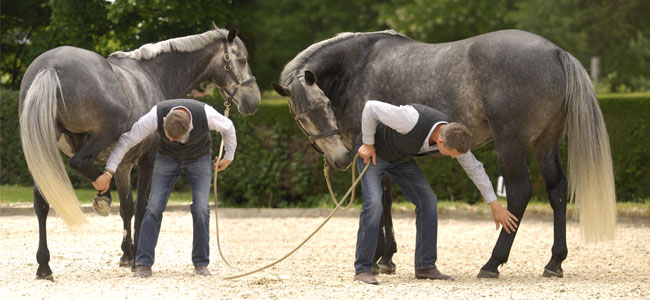Horse owners should know how to handle their horses properly. There’s nothing like a group of horses that is easy to handle especially when it is time to go out to the pastures and during feeding.
Many horse owners will tell you that the consolation of owning one is that these animals are herbivores and will not be interested in biting you. However, they are heavy and huge animals that can kick and show stubbornness when not properly handled especially in transit from home to an event. This is also the time to check you are having the correct type of insurance for transporting your horse in a trailer or horsebox.
Here are some of the basic tips to help you properly handle horses in your care:
(1) When you’re surrounded by horses, just ignore them. Walk past the group if you only need to get one of them to take outside. Don’t show any treat or bring a bucket of food since this will attract them even more. Just shove them away if they’re persistent and show no interest.
(2) When you have separated one of the horses and have brought it outside in the pasture, that’s the only time to give it some treats. Make sure the gates are locked before you head out with the lone horse as the others may follow suit if they sense there’s food in your pocket.
(3) Horses are clever, so it’s better to teach them using treats as reward for good behaviour. These animals are able to understand this especially when you want to take each one of them outside without resistance.
(4) Kicking and biting horses should be removed from the group or away from people if they are too threatening. Aggressive horses can be liabilities to owners, causing legal problems if they hurt other people or cause damage to other people’s property.
(5) Having horses in the pasture can be enjoyable for you and the animals. So it’s best to handle the situation using rewards and not riding them hard when they’re outside. Create a routine that’s rewarding for your horses so that it is easier and more enjoyable for everyone. Apply this routine whenever you need to take them out, when going back in the stables/barn, and every grooming day.
(6) Calmly release the horse in the pasture and shut the gate close after walking the animal in. Give it a light pat after taking off the halter slowly. If there’s no halter on, make the horse stand next to you until you walk away from it. Never chase a horse when taking it out in the pasture as it will want to run away once you loosen its halter.
(7) If you have a horse with behavioural problems especially when taken out, this needs to be corrected before you let it join a group. If you need help, call a vet or an expert handler to train you and your horse properly.
(8) Pastures should always have enough room especially when there’s a pecking order. If you have ten horses, put out eleven piles of hay to make sure everyone gets to eat. If there are aggressive horses in the bunch, there’s a need to oversee the feeding to ensure no animal gets hurt during feeding time.
(9) Sexually aggressive geldings sometimes require separation from the mares if it is too active and showing bad behaviour. This can be corrected with proper medications if you have no other solution. Ask your vet for recommendations.
(10) When introducing a new horse in the pasture, it is sometimes done over the fence. This is called ‘hand introducing’ the animal especially when you have the facilities and proper fencing to do so. You can introduce the horse first to a possible pasture mate – meaning, having only one of your gentler horses outside when you introduce the newly arrived. You can gradually take out each horse at a time to ensure they are all safe and getting along.
(11) Safe and secure fences are essential for handling horses at any given situation. This ensures that everyone is safe in the premises and that the animals can run away within the pastures if needed. That’s also one reason to have a big enough outdoor space that’s surrounded by secured fences.
Sometimes, handling horses can truly be a handful. But if owning and caring for them is your passion, be sure to have the know-how when handling them especially on certain situations.




